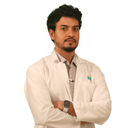Understanding Genetic Disorders and Hereditary Diseases
Understanding the different types of genetic disorders and hereditary diseases for better health management.


Genetic disorders and hereditary diseases can sound intimidating, but understanding them is the first step toward managing or preventing complications. If you or a loved one has been affected by such conditions, know that you’re not alone. With advancements in medical science, early detection and proper care can make a significant difference.
What Are Genetic Disorders?
Genetic disorders are health conditions caused by changes (mutations) in a person’s DNA. These mutations can be inherited from parents or occur spontaneously. Some genetic disorders are present at birth, while others may develop later in life.
Types of Genetic Disorders:
1. Single-Gene Disorders – Caused by mutations in a single gene (e.g., sickle cell anaemia, cystic fibrosis).
2. Chromosomal Disorders – Result from missing, extra, or damaged chromosomes (e.g., Down syndrome).
3. Multifactorial Disorders – Caused by a combination of genetic and environmental factors (e.g., diabetes, heart disease).
4. Mitochondrial Disorders – Affect the mitochondria (the cell’s energy producer) and are passed only from the mother.
Common Hereditary Diseases
Some hereditary diseases run in families and can be passed from parents to children. Common examples include:
- Huntington’s Disease – A progressive brain disorder affecting movement and cognition.
- Haemophilia – A blood clotting disorder leading to excessive bleeding.
- Breast and Ovarian Cancer (BRCA gene mutations) – Increased risk due to inherited gene changes.
- Thalassemia – A blood disorder causing anaemia due to faulty haemoglobin production.
Signs and Symptoms
Symptoms vary widely depending on the disorder but may include:
- Physical abnormalities (unusual facial features, growth delays).
- Developmental delays (learning difficulties, speech problems).
- Chronic illnesses (frequent infections, fatigue, organ dysfunction).
- Neurological issues (seizures, muscle weakness).
If you notice persistent or unusual symptoms in yourself or a family member, consulting a doctor is essential.
Causes and Risk Factors
- Family History – Having a close relative with a genetic disorder increases risk.
- Consanguineous Marriages – Marriages between close relatives can raise the chance of recessive disorders.
- Environmental Factors – Exposure to toxins, radiation, or poor nutrition can trigger genetic mutations.
- Advanced Parental Age – Older parents (especially mothers) have a higher risk of chromosomal abnormalities in children.
Diagnosis and Testing
Early diagnosis can help manage symptoms and improve quality of life. Tests include:
- Genetic Testing – Analyses DNA for mutations.
- Newborn Screening – Checks for metabolic and genetic disorders shortly after birth.
- Prenatal Testing – Detects abnormalities during pregnancy (e.g., amniocentesis, chorionic villus sampling).
- Carrier Screening – Identifies if parents carry genes for certain disorders before planning a family.
If you’re concerned about genetic risks, consider booking a Genetic Counselling session through Apollo 24|7 to understand your options.
Managing Genetic Disorders
While some genetic conditions have no cure, many can be managed effectively with:
1. Medical Treatments
- Medications to control symptoms.
- Enzyme replacement therapy (for metabolic disorders).
- Blood transfusions (for disorders like thalassemia).
2. Lifestyle Adjustments
- Balanced Diet – Nutrient-rich foods support overall health.
- Regular Exercise – Helps manage weight and improve mobility.
- Avoiding Triggers – Some conditions worsen with stress, infections, or certain foods.
3. Emotional and Social Support
- Joining support groups can provide comfort and practical advice.
- Counselling helps families cope with emotional challenges.
4. Family Planning
- Genetic counselling before pregnancy can assess risks.
- IVF with preimplantation genetic diagnosis (PGD) helps select healthy embryos.
Prevention and Awareness
- Know Your Family History – Track any hereditary conditions.
- Stay Informed – Advances in gene therapy and CRISPR technology offer hope for future treatments.
- Regular Check-ups – Early detection of complications improves outcomes.
When to See a Doctor
Consult a specialist if:
- You have a family history of genetic disorders.
- You experience unexplained symptoms.
- You’re planning a pregnancy and want genetic screening.
You can easily book a consultation or genetic test through Apollo 24|7 for expert guidance.
Final Thoughts
Living with or being at risk for a genetic disorder can be challenging, but knowledge empowers you to take control. With proper care, many individuals lead fulfilling lives. Early detection and a healthy lifestyle can make all the difference. If you have concerns, don’t hesitate to reach out to a genetic counsellor or specialist today.
Would you like to schedule a genetic test or consultation? Visit Apollo 24|7 to book an appointment with expert geneticists.
Consult Top Specialist
Consult Top Specialist

Dr. Suvadeep Sen
Critical Care Specialist
12 Years • MBBS, MD, FNB (CRITICAL CARE MEDICINE), EDIC
Mumbai
Apollo Hospitals CBD Belapur, Mumbai

Dr. Tanmaya Kumar Sahu
General Physician/ Internal Medicine Specialist
12 Years • MBBS, MD ( Internal Medicine )
Bhubaneswar
Apollo Hospitals Old Sainik School Road, Bhubaneswar

Dr. Mainak Baksi
General Practitioner
13 Years • MBBS , MD (MPH)
Howrah
Mainak Baksi Clinic, Howrah
(50+ Patients)
Dr. Gaddam Manoj
General Practitioner
1 Years • MBBS
Hyderabad
Aaradhya clinic, Hyderabad
Dr. Sahana B
General Practitioner
3 Years • MBBS
Koppal
Khushi multi-speciality hospital, Koppal




